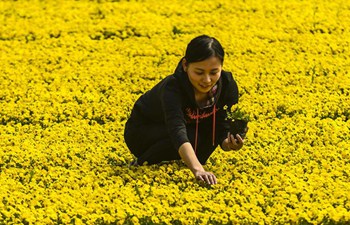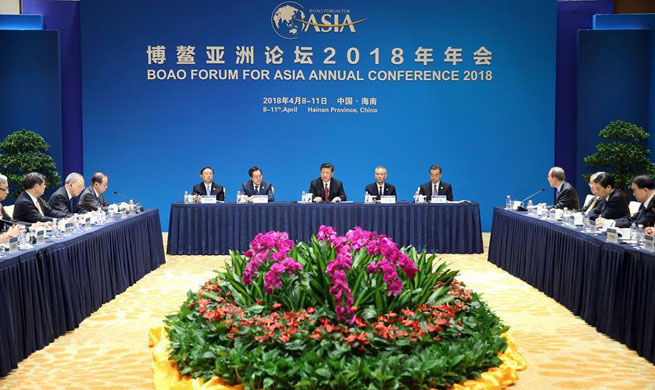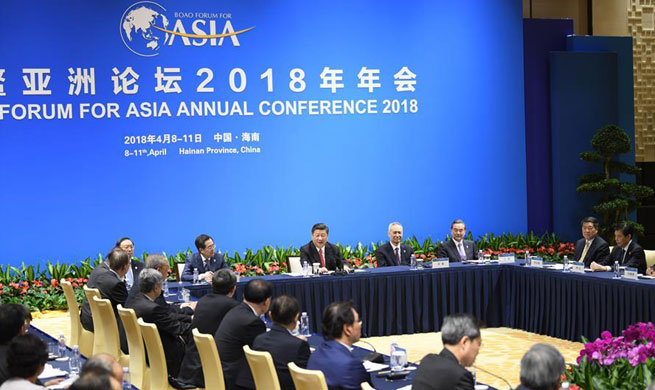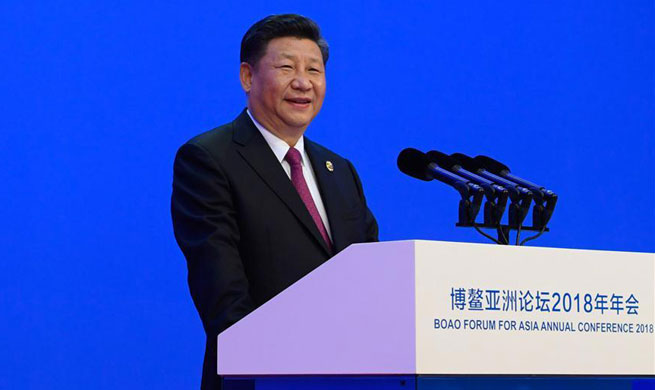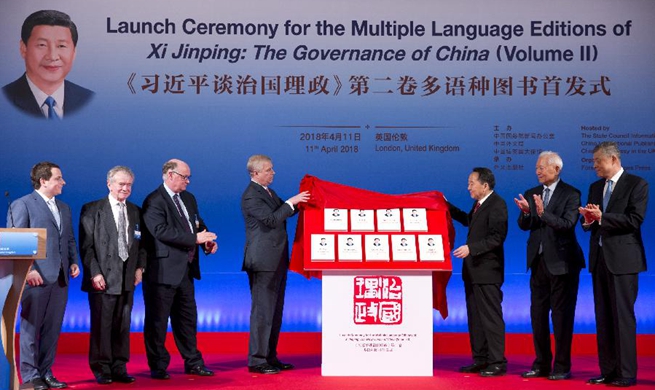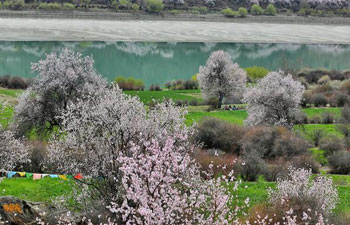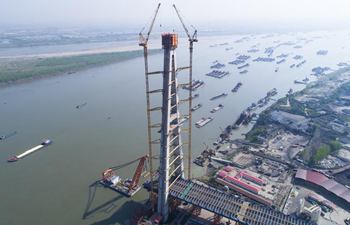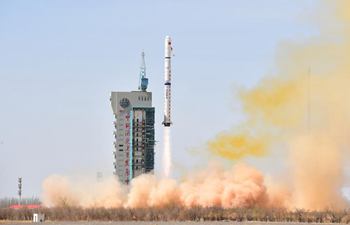GENEVA, April 12 (Xinhua) -- The World Trade Organization (WTO) said Thursday that global trade was expected to remain strong, with the merchandise trade volume predicted to expand 4.4 percent in 2018 and 4.0 percent in 2019.
The continued expansion depends on robust global growth and governments' support for the right trade policies, the organization said in its annual forecast.
However, the WTO cautioned there are signs that escalating trade tensions may already be affecting business confidence and investment decisions, which could compromise the current outlook.
"The strong trade growth that we are seeing today will be vital for continued economic growth and recovery and to support job creation," said WTO Director-General Roberto Azevedo.
He warned that this important progress could be quickly undermined, "if governments resort to the restrictive trade policies, especially a tit-for-tat process that could lead to unmanageable escalation."
Speaking of a rise in tension witnessed between world trading partners, the WTO chief estimated that "the possibility of further escalation remains hypothetical at this stage, but a reality nonetheless."
He also noted that even the threat of further escalation may already be having an effect, adding that in March, purchasing managers indices indicated a slowdown in export orders, while a separate index of economic uncertainty has risen.
"It is not possible to accurately map out the effects of a major escalation, but clearly they could be serious," said Azevedo.
"A breakdown in trade relations among major players would derail the recovery that we have seen in recent years, threatening the ongoing economic expansion and putting jobs at risk," he warned.
The world trade chief reiterated that the pressing trade problems facing the WTO are best tackled through collective action.
The WTO said that the acceleration of world merchandise trade volume growth to 4.7 percent in 2017 from 1.8 percent the year before was broad-based, driven by rising important demands across regions, but most notably in Asia.






